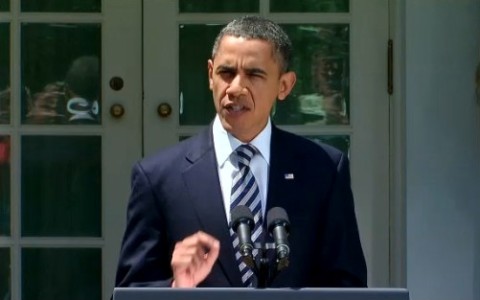Better than a government default

It's official: Congress passed a debt-ceiling deal--concerns about a nail-biter in the House yesterday were
overblown--and the president signed it. This is certainly preferable to the
country defaulting on its obligations, and Obama never showed much interest in
running an end around Congress.
This is not, however, an
inspiring piece of legislation. It makes deep cuts to discretionary spending--a
relatively small slice of the budget pie but
one that includes many antipoverty programs--and establishes a process for more
such cuts later. (Defense cuts are included here as well.) The bill punts on
entitlement reform, tax expenditures and new revenues. And while some spending
cuts are delayed to reduce harm to the fragile economy and the Americans it's
left jobless, the bill does nothing to alleviate this situation in the
meantime.
It didn't have to be this way.
Tackling the deficit and tackling unemployment may be in conflict
conceptually and, more to the point, in terms of political rhetoric. But as a
long-term economic strategy, they work in tandem. Ezra Klein explains:
The economy is weak now,
with too little demand and too little growth, and threatened by mounting
deficits later. The answer, as any economist can tell you and as many told
Congress, is simple: do more to support the recovery now and more to cut
deficits later. . . . These two priorities don't conflict. In fact, they
support each other. Faster growth now will mean smaller deficits later.
Not
long ago, this was conventional wisdom--not only among economists but among
politicians on both sides of the aisle. Debates about how and how much the
government should stimulate the economy when it's weak (targeted tax cuts are
one way!) are routine. But the notion that it shouldn't do so at all makes
sense only to those who begin with the principle that government can do no
good. Lately, they seem to be running the place.
With
the debt-ceiling fight behind them, Democrats plan to finally turn their attention to jobs.
That's welcome news, but it's far from clear that they'll be able to accomplish
much. These days, the political climate is almost as hostile to pro-job efforts
as the job market is to the unemployed.






